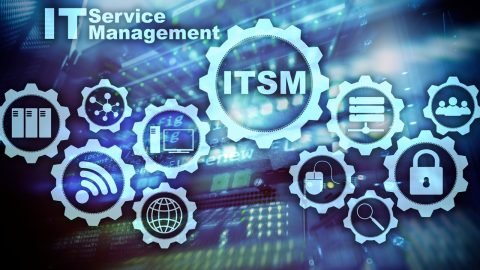California leads the nation in data attacks and access breaches. More than 325,291 victims have lost more than $3.7 billion since 2017, as reported by Governing—the highest number of emerging threats in the United States. This is one of the main reasons managed IT security services are essential.
It’s a struggle for any organization to defend its business, data, and clients without the help of a global MSSP. Thus, managed IT security services can help your organization improve its threat intelligence, security monitoring, and vulnerability management services.
Let’s look at four different types of cyber security threats that may affect your California business, as well as how managed IT security technologies can protect you from cyber threats.
4 Types of Threats to Consider for Managed IT Services
1. Malware Attacks
Malware refers to common cyber attacks experienced by smaller organizations. They work by targeting your network security with a variety of malicious activities.
Common types of malware include:
- Worms
- Trojans
- Ransomware
Affant protects many organizations with malware monitoring services and quality response solutions. Our MSSP manages your cyber defense with outsourced monitoring, intrusion detection and response, and 24/7 cloud security.
2. Denial-of-Service Attacks
Denial of service attacks destroys target systems by overloading them with traffic. This could lead to significant security incidents that involve a loss of data or even a security breach.
Choosing the right service ensures your system is continuously monitored with a world-class security program. A trained security team offers compliance management and endpoint detection to keep your team ready for anything.
3. Supply Chain Attacks
The newest danger to technology services is supply chain attacks, advanced threats designed to infect software or technology investments. These attacks can lead to significant losses, which may cause your company to close its doors completely.
Managed application security is an excellent solution to this. Our round-the-clock threat monitoring programs ensure a rapid incident response, while full-service security analysts and a managed firewall can defend your brand with supervised endpoint security.
4. Social Engineering Attacks
Phishing, baiting, and pretexting are all examples of social engineering attacks. Attackers pretend to be authoritative figures to access passwords, usernames, and sensitive information.
Unlike other managed security service providers, Affant provides secure event monitoring, threat intelligence, and vulnerability scanning to keep your company safe. We enhance rather than detract from your team’s capabilities and ensure PCI compliance by following regulatory requirements.
Prevent and Secure Cyber Security Attack with Affant IT Management
Cyberattacks are an ongoing threat to any California company. To defend yourself and your bottom line, turn to a managed security services provider you can trust—including Affant.
Unlike other MSSPs, Affant is a security provider that genuinely cares about its 24/7 response. This is why we provide:
- Managed detection
- Incident response
- A counter-threat platform
- Advanced analytics for CPU utilization, error thresholds, and network connectivity up/down
Protect your company name and mitigate risk with managed IT security services from us. For a custom quote, fill out our online form or contact us at 714-338-7100 at Affant IT Management today!
Managed IT Security FAQs
What is a managed security system?
Managed security services are outsourced IT programs that monitor your company for security events.
Are managed IT services secure?
The average security service provider (MSSP) implements security operations through the cloud, making your outsourced managed detection and response program both safe and reliable.
What does a managed security service provider do?
A managed service provider generally uses security expertise to complement your security operations.
What are managed cybersecurity services?
Examples of managed security services from Affant include event management, threat hunting, PCI scanning, and continuous monitoring for viruses via detection and response.











